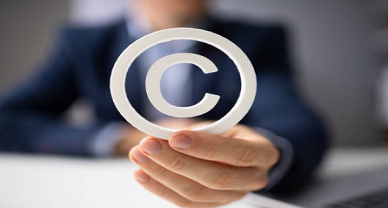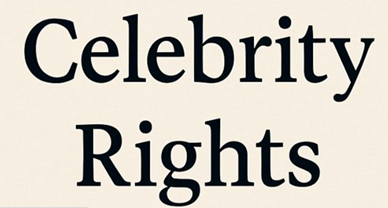What Are The Various Copyright Law Issues With Apps Like Spotify In The Modern Tussle Between Artists And Corporate Giants?
Historical lookback
The amendment to the existing copyright law act of 1957 was carried out owing to the sensitization of issue of copyright management and revenue sharing structure that is fair and reasonable to all owners and writers of filmed and recorded works.[i] One of the prime judgements that put the plan in action for the amendment was the Javed Akhtar v. Magic Mantra Vision.[ii] This unreported judgement helped bring the grievances on the table for the others to see that copyright law has deficiencies in terms of music sharing and copying along with royalty issues.[iii] However, the act still comes short to address the issue of royalty and copyright claims in the digital streaming creative works. Even if a court rules in favour of the owner, infringement would undoubtedly persist if the local copyright regime is not strong enough to prevent it.[iv]Section 51(1)[v] of the Copyright Amendment act specifically protects the digital works including music and cinematography works by enumerating the ways on how infringement can persist when it comes to matters of copyright. The reproduction of such content without due permissions is highly condemned to be subject for penalties and civil action.
[Image Sources: Shutterstock]
The earliest examples of unsolicited sharing of works without proper licensing pertains to the development of Napster in the early 21st century. With the advent of Napster in 1999, the world was introduced to the first streaming on-demand music subscription service, which offered users unrestricted access to a massive music library for a single monthly charge. [vi]Although P2P music sharing had been around before, Napster streamlined the process by consolidating the industry and foreshadowed the future success of rival digital music streaming companies. However, similar to modern music streaming services, the downfall of Napster is the same reason which plagues the whole industry in today’s dynamic world. Napster was crushed by multitude of copyright lawsuits in just a span of 2 years and was burdened with lower or no licensing for most of the works present on the platform.
Spotify & Competition Tactics
In a bid to keep up with competition , the modern digital rivals of Napster like Spotify and Pandora have taken ways of negating the due procedure of acquiring licenses in the hope of expediency rather than compliance. They believe in subscription-based music sales that don’t include direct (i.e., from the copyright holder) licencing or compulsory licencing (i.e., obtained without express due permission from the license holder).[vii] The problem with these apps is the approach of “having all the music in the entire world on the fingertips but not paying for it fully”. This constitutes the idea of mass catalogue with little to no procurement costs that lead to massive profits for the company. It is because of such underpayment tactics that various artists all over the world condemned the practices of Spotify and removed their content from their streaming service.[viii] Spotify, Pandora and other companies also follow the principle of settlement rather than compliance in their regimes. Instead of paying right royalties and buying adequate licenses, these companies believe in acquiring a huge catalogue first and bearing the cost later through settlements which helps in keeping the costs at check along with brand reputation; since cases are settled before going to the court.[ix] It is essentially a cheap get out of jail free card for companies like Spotify who use copyright litigation and time as a weapon to cede the music label into bowing down.[x]In India, Spotify has been served with multiple notices of copyright infringement and illegal reproduction for violation of Section 31D[xi]of the copyright act. One of the most recent injunction cases in relation to Spotify and this section was with Saregama who directed Spotify to remove entire libraries of songs after an injunction.[xii] In another recent event, Spotify was forced to remove its Hindi catalogue of songs due to a licensing issue with the famous music giant- “Zee Music”.[xiii]
Recently in Tips Industries Ltd. v. Wynk Music Ltd[xiv], it has been determined that the relevant sections of the Copyright Act requiring statutory licencing does not apply to music that is downloaded digitally or streamed over the internet. Thus, such a precedent can have detrimental effects for artists when it comes to copyright reproduction enforcement in relation to companies like Spotify. In International Precedents, the outcome of Eight Mile Style, LLC et al v. Spotify USA Inc.[xv]wherein the plaintiffs claim that Spotify unlawfully put recordings of their musical works in the Spotify collection without permission, sets a worthy precedentof how Spotify is devoid of any mechanical licenses which are needed to publish music and takes the approach of licensing very casually (despite being one of the biggest music streaming service in the world) . Additionally, the recommendations of 161st Rajya Sabha[xvi] report on Review of Intellectual Property Rights Regime in India provide in maintaining the sanctity and significance of IPR laws along with a clear focus on making artist focused copyright laws.
Conclusion
In the present scenario it can also be observed that big labels who are licensing their catalogues have resorted to new and improved ways of sharing copyright data to streaming services. Some of these instances include the Taylor swift-Spotify share sell off strategy[xvii]. When a musician signs with a record company, they may get a cash advance or free use of high-priced studio time. When an artist becomes successful, they are able to start paying back the label the money they are owed. Swift insisted on an unusual stipulation, which states that if a Musical group sells its interests in Spotify, then the company cannot withhold any of the proceeds from the sale from its other artists who are still in debt to the label. This provision has no effect on the royalty payments Spotify makes to Musical Groups (like UMG- Universal Music Group) or its artists for music played on Spotify.[xviii]
Section 55[xix] of the Copyright Act grants the artists the remedial measures through damages, compensation and other means. In the recent case of Entertainment Network (India) Ltd. and Ors. vs. Super Cassette Industries Ltd. and Ors. [xx],the ratio decidendi was concluded that the court’s duty in issuing compulsory licences is to strike a fair balance between the rights of the copyright owner and the other party.In terms of copyright societies in India, they can be deemed to be insufficient at best since their workings do not corroborate to international standards of other copyright royalty boards in developed countries. These royalty boards have distinguished themselves in the field of allowing artists the rightful compensation and royalty that they deserve.[xxi]Hence it is important that we formulate such rules that balance the rights between copyright holders like artists and distribution streaming houses like Spotify and stop their malpractices of using litigation as a weapon to control the song streaming monopoly.
Author: Harjas Gulati. in case of any queries please contact/write back to us at support@ipandlegalfilings.com or IP & Legal Filing
[i] Bhumesh Verma,Somashish, A critique of the provisions on Copyright Societies under the Copyright Act, 1957, SCC ONLINE BLOG, https://www.scconline.com/blog/post/2018/03/14/a-critique-of-the-provisions-on-copyright-societies-under-the-copyright-act-1957/
[ii] Javed Akhtar v. Magic Mantra Vision, CS (OS) NO. 1743/2005 (Delhi H.C.), August 21, 2006, (Unreported)
[iii] Shammad Basheer, The Copyright (Amendment) Act 2012, A Fair Balance ,5 NUJS L. REV. [i] (2012)
[iv] Christopher Beam, How Strict Are Chinese Copyright Laws?, SLATE (Oct 22, 2009, 6:16 PM), https://slate.com/news-and-politics/2009/10/is-copyrightlaw-in-china-any-different-from-in-the-united-states.html.
[v]Copyright Amendment Act, 1957, §51(1) , No. 14 , Acts of Parliament, 1957 (India).
[vi] Frances Lewis, Slipping Through The Cracks: How Digital Music Streaming Cuts Corners On Artists’ Royalty Revenues Globally, 43 BROOK. J. INT’l L. 297 (2017).
[vii] Anna S. Huffman, What the Music Modernization Act Missed, and Why Taylor Swift Has the Answer: Payments in Streaming Companies’ Stock Should Be Dispersed among All the Artists at the Label, 45 J. CORP. L. 537 (2020)
[viii]Id
[ix] Sarah Perez, Spotify settles the $1.6B copyright lawsuit filed by music publisher Wixen, TECH CRUNCH, (20 December 2018), https://techcrunch.com/2018/12/20/spotify-settles-the-1-6b-copyright-lawsuit-filed-by-music-publisher-wixen/
[x] Andrew Flannagan ,Spotify Sued, Yet Again, Over Compositions, NPR, (21st July, 2017) https://www.npr.org/sections/therecord/2017/07/21/538501163/spotify-sued-yet-again-over-compositions
[xi] The Copyright Act, 1957, §31(D), No. 14 , Acts of Parliament, 1957 (India).
[xii] Sakshar Law Associates, Tracing the Spotify litigation Journey in India, LEXOLOGY, (March 24, 2022), https://www.lexology.com/library/detail.aspx?g=d0e0f5e6-8b97-49d7-9aec-4be71bc7a6e5#:~:text=Responding%20to%20a%20copyright%20violation,Saregama%20from%20the%20app%20within
[xiii] Anna Cooban,Spotify removes Bollywood song catalog in licensing dispute,CNN (23rd March 2023),
https://www.cnn.com/2023/03/23/media/spotify-bollywood-zee-music-dispute/index.html,
[xiv] Tips Industries Ltd. v. Wynk Music Ltd,MANU/MH/0862/2019
[xv] Eight Mile Style, LLC et al v. Spotify USA Inc., 535 F. Supp. 3d 738 (M.D. Tenn. 2021)
[xvi] 161st Rajya Sabha Parliamentary Standing Commission Reports, Review of the Intellectual Property Rights Regime in India, DEPARTMENT RELATED PARLIAMENTARY STANDING COMMITTEE ON COMMERCE, (23rd July ,2021), https://rajyasabha.nic.in/rsnew/Committee_site/Committee_File/ReportFile/13/141/161_2021_7_15.pdf
[xvii] Rachel England, Taylor Swift ensures UMG artists will profit from Spotify shares
ENGADGET , (20th November, 2018), https://www.engadget.com/2018-11-20-taylor-swift-umg-artists-profit-spotify-shares.html
[xviii]Supra n.12
[xix] The Copyright Act, 1957, §55, No. 14, Acts of Parliament, 1957 (India).
[xx] Entertainment Network (India) Ltd. and Ors. v. Super Cassette Industries Ltd. and Ors., (2008)13SCC30
[xxi] Angelina Sanchez, Copystrikes and Meme Bans: Social Media and Copyright Protections in the Digital Age, 47 BROOK. J. INT’l L. 299 (2021)



